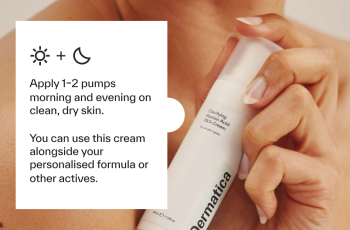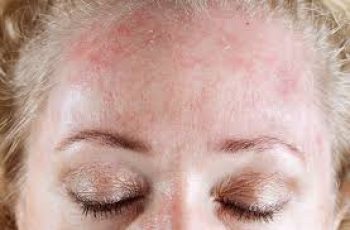
Demystifying Retinol: Everything You Need to Know About This Powerful Skincare Ingredient
Retinol is one of the most popular skincare ingredients in the world today.
It’s praised for its ability to treat acne and reduce signs of aging, but many people still don’t fully understand what it does or how to use it.
Let’s take a deeper look at retinol—what it is, how it works, who should use it, and how to include it safely in your skincare routine.
What Exactly Is Retinol?
Retinol is a form of vitamin A, a fat-soluble vitamin that is essential for healthy skin, vision, and immune function. In skincare, retinol is part of a broader group called retinoids.
Retinoids include several compounds such as retinoic acid, retinaldehyde (or retinal), and retinyl palmitate. All of these are derived from vitamin A and vary in potency.
Retinol is considered one of the most effective over-the-counter retinoids. It is milder than prescription-strength retinoic acid but still offers excellent results with consistent use.
Retinol vs. Retinoids: Know the Difference
While people often use the terms “retinol” and “retinoid” interchangeably, they are not exactly the same. All retinols are retinoids, but not all retinoids are retinols.
Retinoids is a general term for all vitamin A derivatives, including both prescription and non-prescription versions. Retinol is the most common non-prescription option.
Prescription retinoids, like tretinoin, are stronger and work faster. They stimulate higher cell turnover and are used for serious acne or more visible aging concerns.
Retinol, on the other hand, works at a gentler pace. It encourages gradual skin renewal, making it better suited for beginners or those with sensitive skin.
What Does Retinol Do for Your Skin?
Retinol offers multiple benefits when used properly. It helps increase cell turnover, the natural process by which your skin sheds old cells and creates new ones.
It unclogs pores, reduces blackheads, and prevents acne breakouts. This makes retinol a popular choice for people with mild to moderate acne.
Retinol also stimulates collagen production, which is the protein that keeps your skin firm and youthful. Over time, this can reduce fine lines and wrinkles.
In addition, retinol helps fade dark spots, smooth rough texture, and give your skin a brighter, more even tone. It’s a multi-tasking powerhouse in skincare.
How to Use Retinol in Your Skincare Routine
Retinol is now widely available in over-the-counter creams, serums, and night treatments. These products are made with low concentrations of retinol for safer, everyday use.
Because retinol can be irritating when you first start, it’s important to introduce it slowly. Begin by applying a pea-sized amount just twice a week at night.
As your skin builds tolerance, you can gradually increase frequency to every other night or even nightly use. But rushing this process can lead to redness or peeling.
Always follow retinol with a gentle moisturizer to reduce dryness. In the morning, apply a broad-spectrum sunscreen of SPF 30 or higher, as retinol increases sun sensitivity.
Retinol and Skin Sensitivity: Who Should Be Cautious?
Before you start using retinol, you should know if your skin is already dry, irritated, or overly sensitive. Retinol may worsen these conditions if not handled carefully.
People with eczema, rosacea, or extremely dry skin should consult a dermatologist before using any retinoid, including over-the-counter options.
Pregnant or breastfeeding women should also avoid retinol products. High doses of vitamin A can be harmful during pregnancy, even when applied topically.
If you are unsure whether your skin is ready for retinol, a professional skin evaluation is a great first step. It can help you avoid unnecessary irritation or damage.
Buying Retinol Products: What to Look For
Not all retinol products are created equal. The quality and effectiveness of a product can depend on the concentration of retinol and the formula used.
Always start with low concentrations, such as 0.25% or 0.3%. Higher strengths should only be used after your skin has adjusted or under professional guidance.
Look for products that come in opaque, air-tight packaging. Retinol breaks down when exposed to light and air, so proper packaging helps keep it stable.
Also, opt for formulations that include hydrating ingredients like hyaluronic acid, niacinamide, or ceramides. These can counteract dryness and make retinol more tolerable.
Dermatologist-recommended brands are a safe bet. These products are typically tested for both efficacy and safety on different skin types, including sensitive skin.
Can Retinol Be Used on All Skin Types?
Yes, with the right guidance, most skin types can benefit from retinol. There’s no restriction based on gender or ethnicity. Indian skin, darker tones, and fair skin all respond well to it.
However, it’s important to note that people with darker skin tones may be more prone to post-inflammatory hyperpigmentation. This makes it essential to use retinol carefully.
Always pair your retinol use with sunscreen during the day. Sun exposure without protection can make your skin more vulnerable to irritation and damage.
Retinol Myths and Misconceptions
There is a lot of misinformation online about retinol. Some people avoid it entirely because they believe it’s too strong, dangerous, or only for older people.
In truth, retinol is safe for most adults when used properly. Even people in their early 20s can use it for acne control or to maintain youthful skin over time.
Another myth is that more retinol means better results. In fact, using too much too soon often leads to dry, flaky, and angry skin. More isn’t always better.
Also, people often think they must see peeling for retinol to be working. That’s false. Retinol can improve skin texture without visible irritation. Slow, steady progress is best.
When Should You See a Dermatologist?
If you’ve tried retinol but haven’t seen results after 12 weeks, or if your skin reacts badly, it’s time to consult a dermatologist. You may need a stronger retinoid or different treatment.
Likewise, if you’re considering retinoids for severe acne or deep wrinkles, don’t self-diagnose. Medical-grade products need to be used correctly to avoid long-term skin issues.
A dermatologist can evaluate your skin type, recommend the right formula, and monitor your progress. This reduces the risk of side effects and ensures optimal results.
Timing Matters: Why Retinol Works Best at Night
Retinol breaks down when exposed to sunlight, so it’s most effective when applied at night. This is also when your skin is in repair mode, making the treatment more effective.
At night, your body is at rest, and your skin is free from external stressors like pollution, UV rays, and sweat. This makes bedtime ideal for retinol application.
Make it part of your evening skincare routine. First, cleanse your face, then apply a small amount of retinol. Follow it with a calming moisturizer to seal in hydration.
You may also consider layering it with a barrier-repair serum or oil to reduce irritation. This is especially helpful if you’re new to retinol or have dry skin.
Final Thoughts: Is Retinol Right for You?
Retinol can offer incredible benefits when used the right way. It helps reduce acne, fight signs of aging, and improve skin texture and tone over time.
However, it’s not a one-size-fits-all solution. You need to consider your skin type, current condition, and how willing you are to commit to a routine.
Start slow, be patient, and don’t skip your sunscreen. And when in doubt, seek advice from a dermatologist who can guide you safely through your skincare journey.
With the right care, retinol can be a powerful ally in your path to healthier, brighter, and younger-looking skin.


